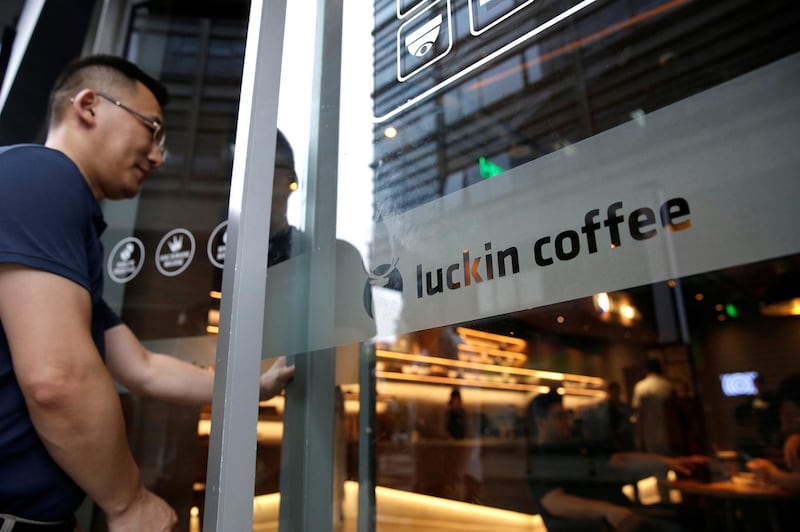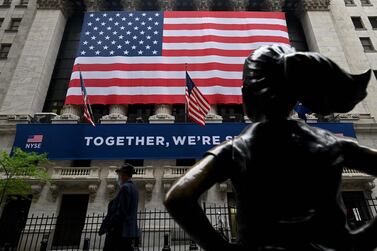Luckin Coffee’s board will require Chairman Charles Zhengyao Lu to resign, adding to the fallout from an accounting scandal that has battered the onetime market darling.
The proposal was requested by a majority of directors and was based on the findings of an internal investigation, the Chinese company said in a filing. The board will hold a special meeting on the matter on July 2.
The move, coming after Luckin fired its chief executive last month, adds to the list of challenges facing Mr Lu, who became a billionaire after his fast-growing Chinese coffee chain went public in the US. Much of Mr Lu’s wealth has been wiped out by a plunge in Luckin’s stock of more than 90 per cent since April, when the company disclosed that some of its employees may have fabricated billions of yuan in sales.
The company’s US depository receipts tumbled 54 per cent Friday after Luckin said it would no longer seek a hearing on a potential delisting from the Nasdaq Global Select Market.
Last month, lenders led by Credit Suisse Group targeted the family assets of Mr Lu as they tried to recoup losses on more than $500 million (Dh1.83 billion) in soured margin loans. They won a court order to liquidate two holdings – Primus Investments Fund and Mayer Investments Fund – which hold shares in Luckin and are ultimately controlled by the Lu family.
Luckin’s fall from grace has made it a poster child for concerns about Chinese corporate governance, fuelling a debate in Washington over the extent to which US money and capital markets should be made accessible to firms from a growing geopolitical rival. The US Senate approved legislation on Wednesday that could lead to some Chinese companies being barred from American exchanges.
Luckin, founded in 2017, raised $645m in its US IPO last year and counted BlackRock among its backers. It took direct aim at Starbucks in China, with a strategy to open more stores in two years than the Seattle-based heavyweight has in two decades.
To reach its goal of having 10,000 shops by 2021, the company relied on a cash-burning strategy of offering generous discounts to lure patrons: first-time customers got a free cup of coffee and six vouchers for 50 per cent off future purchases. It’s a growth strategy that costs about $130m in a year.
The coffee chain opened 10 outlets a day in its home market in the second quarter as of May 12, bringing its total number of stores to 6,912, according to Thinknum Alternative Data, a New York-based company that collates company operations data from public channels.
Luckin said in early April that it was investigating whether senior officials were involved in fabricating transactions of about 2.2bn yuan (Dh1.14bn). In an internal memo last month, Luckin apologised to employees and their families for the damage wrought by the financial scandal. The fraud has plunged the company into an “unprecedented crisis” and put it at the mercy of public opinion, said the memo.
Luckin delayed its annual results, saying it was unable to prepare the financial report due to the coronavirus pandemic. That raised questions about how long its cash flow can continue supporting its breakneck expansion, especially as Chinese consumer demand stays sluggish because of the outbreak.
Lu resigned earlier this month as chairman and non-executive director of Car Inc, China’s biggest rental-car fleet operator.
Luckin Coffee said in a statement Saturday that its more than 4,000 outlets in China will resume normal operations and its almost 30,000 employees will continue to serve customers.







